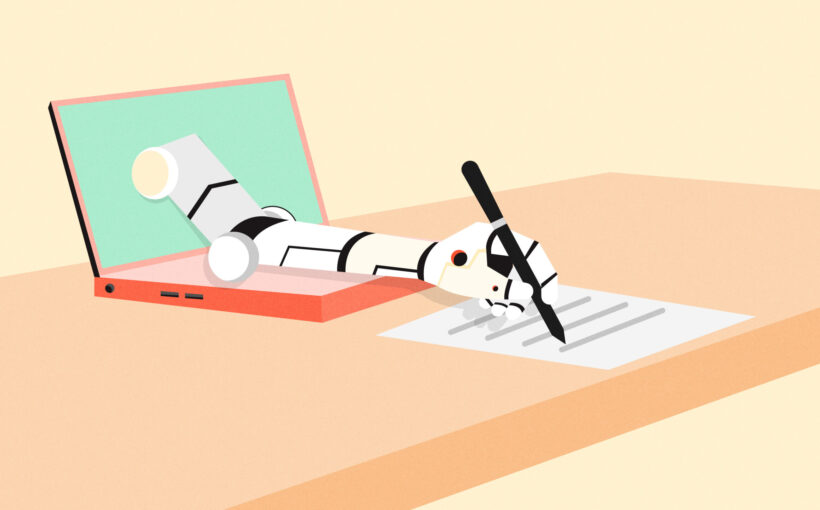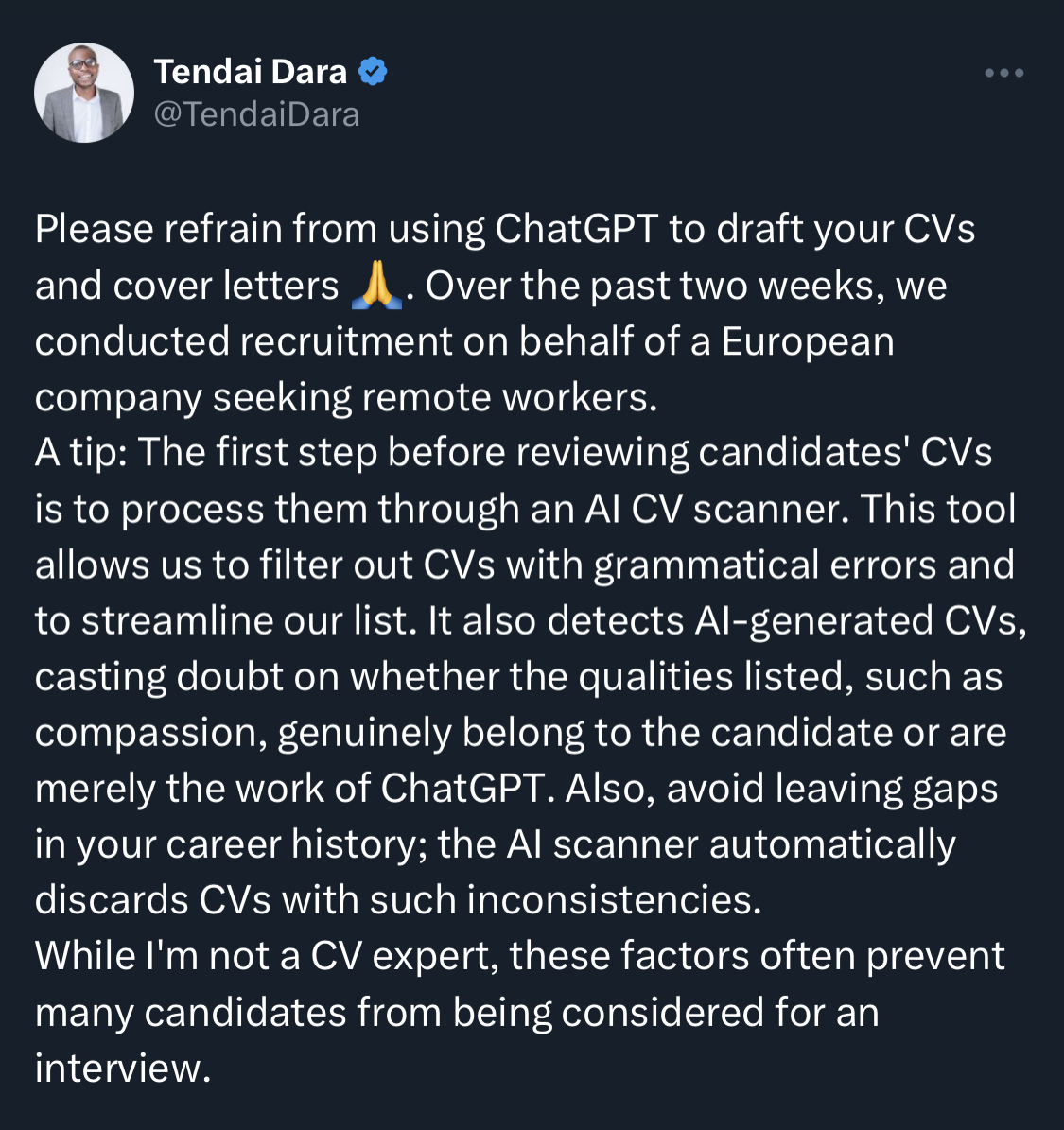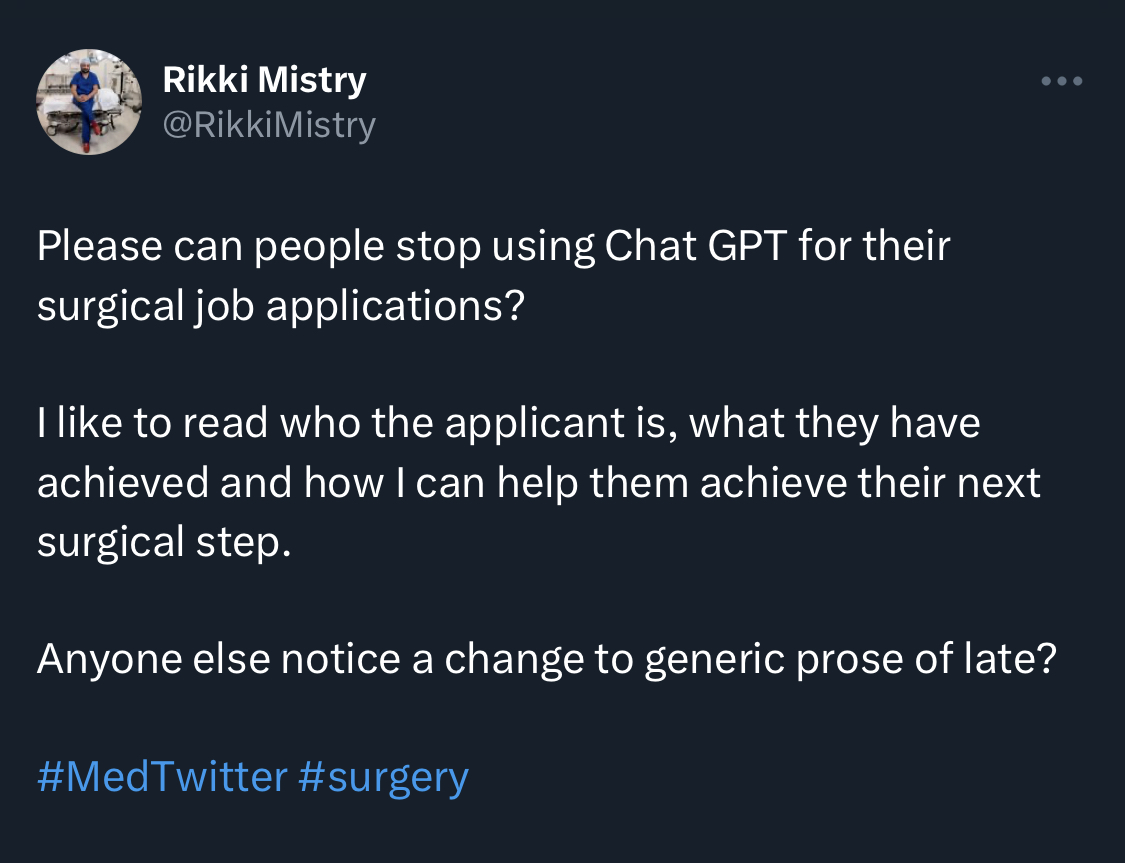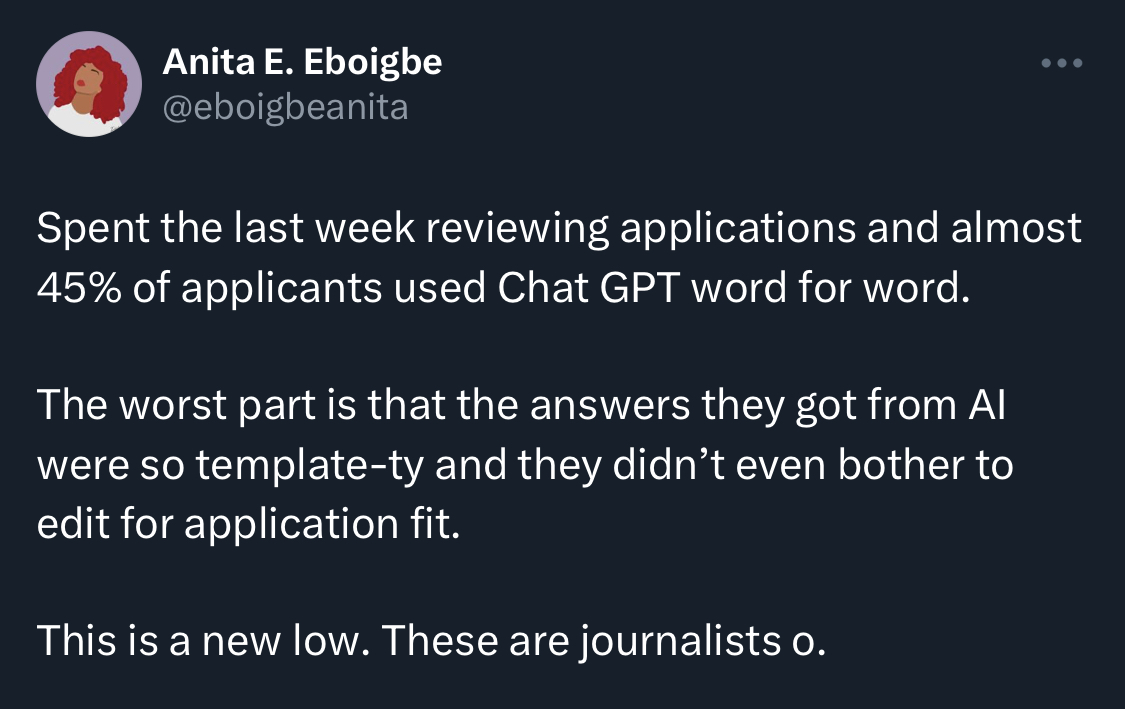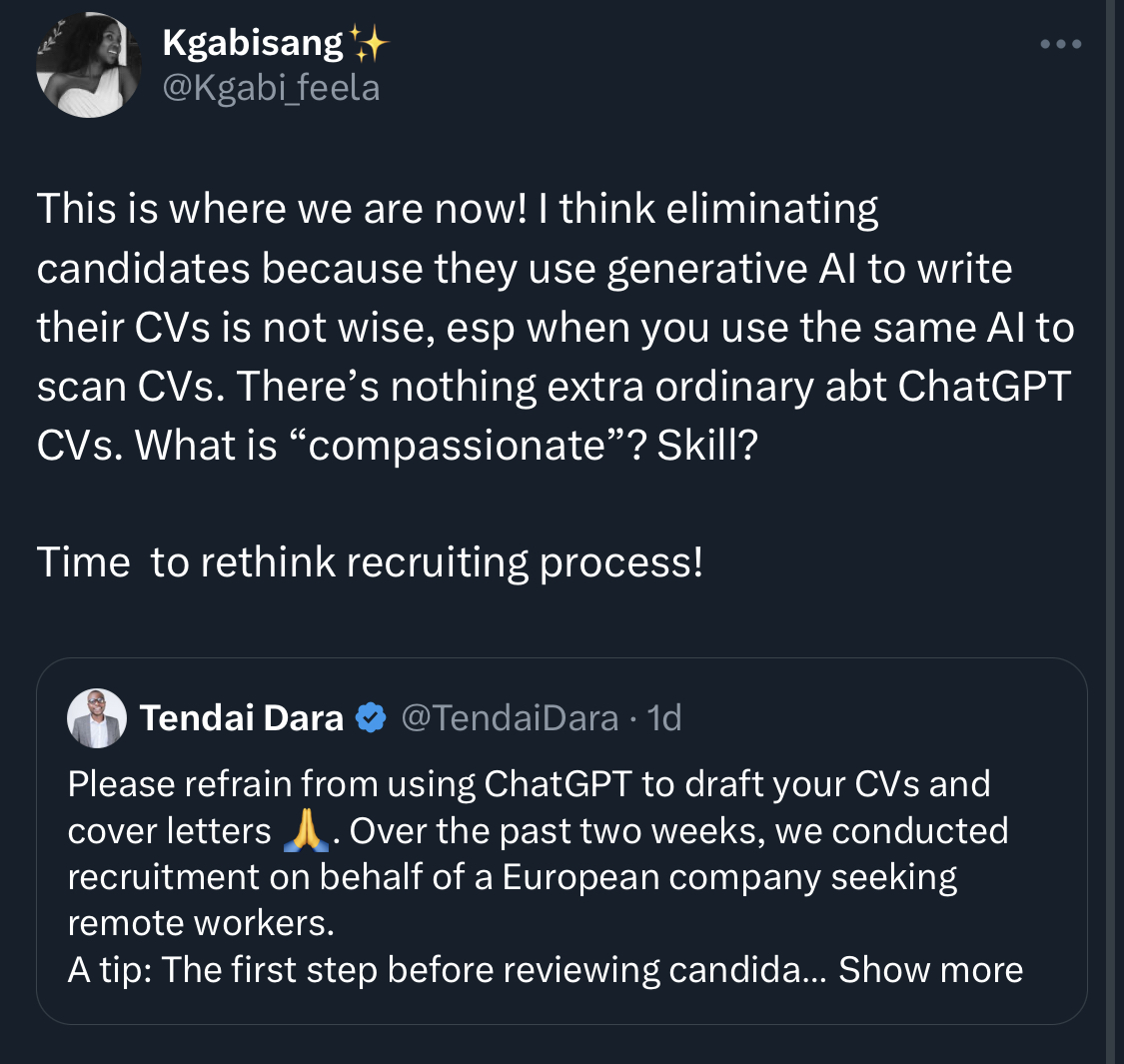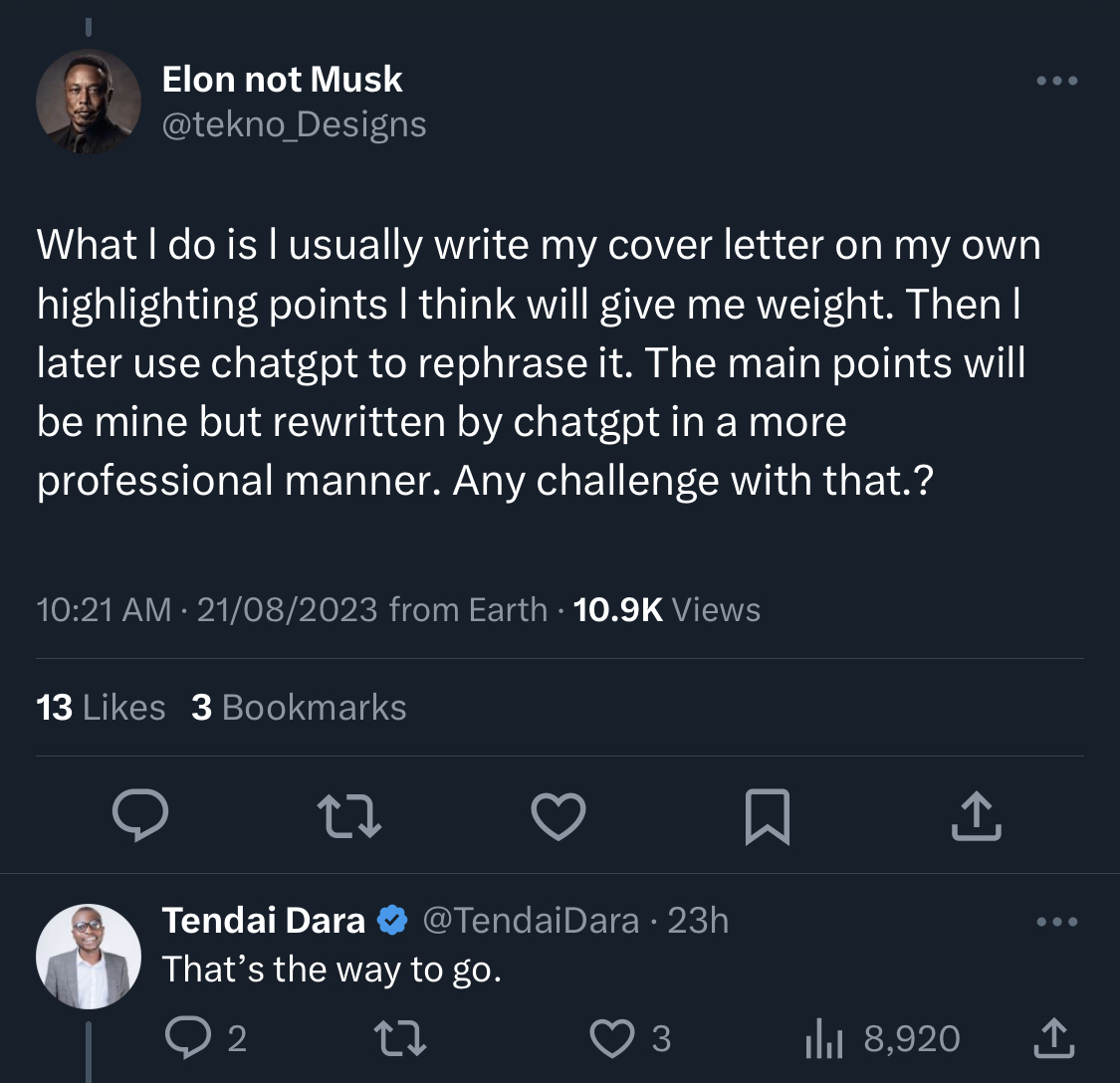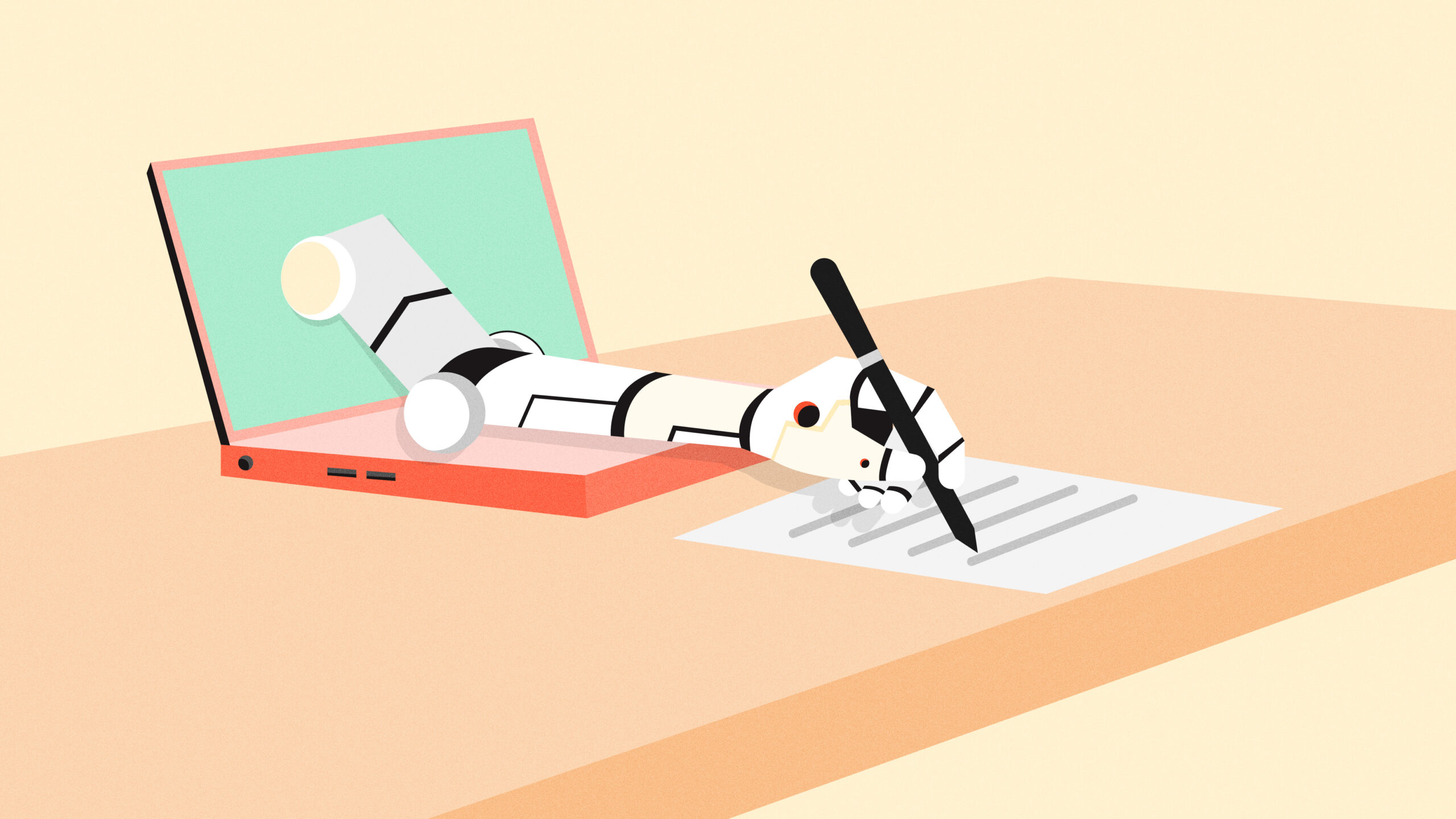
Recently, Tendai Dara asked applicants to stop using AI to draft their CVs and cover letters. His reason? It casts doubt on the credibility of the applicants and limits their chances of being selected for the job.
Tendai isn’t the only one who has shared this opinion on Twitter, now X. A few recruiters have turned to social media to share their reservations about people using AI to apply for jobs or opportunities generally.
The tweets show what recruiters want: a personal, human touch in applications. While AI might offer different responses to similar prompts, there’s a distinct way humans express themselves, different from the way AI tools write.
Oftentimes, recruiters want applicants to discuss their experiences and share their stories in their own words. It not only reads more original that way, but it also demonstrates the applicant’s dedication and commitment to the application process. Recruiters might think that an applicant’s unwillingness to work on their applications themselves is indicative of the kind of attitude they’d potentially bring into the job.
The application process – your CV and cover letter inclusive – is mostly a test to see if you are the best fit for the organisation and if – with your qualifications and level of experience – you can manage the workload effectively. So if potential employers sense that an applicant is struggling with writing CVs and cover letters and is relying on AI to get the job done without making minor adjustments, it raises concerns about how the applicant’s problem-solving skills will be applied to various processes.
But is this always the case? Many would argue that an applicant’s thinking process isn’t inhibited by using AI to properly structure their CV. Or that using AI tools makes them lazy.
Except in cases where the applicant copies another person’s cover letter or lies about their qualification – which is a crime, by the way – Luna, in the tweet above, says that applicants’ skills and qualifications are theirs; AI tools simply helped them put it together better. And isn’t that the essence of technology? “AI just ensures that the CV is well written,” Luna tweeted, “It doesn’t take away from the person’s personality, skills or qualifications.”
If AI tools are meant to enhance human workflow productivity, what’s the fuss about writing CVs and cover letters with them? In fact, shouldn’t recruiters be pleased with an applicant’s understanding of AI tools, and ability to use them effectively? Surely, you don’t want a technological laggard as an employee.
So, AI or not?
In his tweet, Tendai mentioned that the first step before reviewing candidates’ CVs is to “process them through an Al CV scanner which filters out CVs with grammatical errors, streamlines the list, and detects Al-generated CVs.” If recruiters use technology to help them sieve through CVs, evaluate a potential employee, and make the hiring process easier, isn’t it hypocritical of them to ask applicants not to use AI to make their application process easier?
Perhaps recruiters must understand that just as they have tens or hundreds of applications to read, applicants also have tens of opportunities to apply to. Writing different cover letters or tailoring your CV to different job positions without any help can become exhausting. This understanding could help recruiters be less critical of applicants using AI.
There’s also the possibility that AI tools may not be 100 per cent reliable. Are recruiters like Tendai simply punishing applicants for the crime of having a well-written CV? Never can tell!
Will you keep using AI for your applications?
If you have been using AI to write your cover letters and CVs, will you continue or does this insight influence your approach moving forward? As a recruiter, will you reject AI-written CVs after reading other people’s perspectives?
To be honest, there is no one-style-fits-all approach to recruitment and application. Like Elon who is not Musk, applicants can ensure their application is not all AI-ish. In the same vein, recruiters can ensure they are not alienating solid candidates in their bid to prevent applicants from utilising technology.
– BellaNaija .
